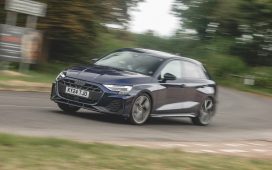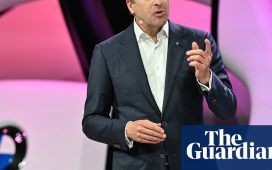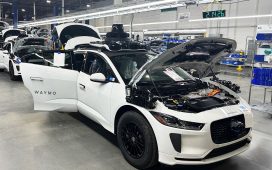Aston Martin sales went into reverse in the first six months of 2024 but the luxury carmaker says it expects a recovery in the second half as it completes an update of its model lineup.
The FTSE 250 company said the number of cars sold to dealers fell by a third to 2,000, while first-half losses rose by 52% to £216.7m.
But its share price rose by more than 6% on Wednesday as it promised an “exciting” second half and a pickup in sales.
The 111-year-old company, best known as the maker of cars in the James Bond spy film series, nearly went bust for an eighth time in 2020 but was saved by Lawrence Stroll, the billionaire fashion mogul.
Since then, Stroll has struggled to turn the company around, first by trying to restore an air of exclusivity to the brand by reducing the number of cars held by dealers and sponsoring a Formula One race team, and then by releasing new models.
It has launched a new Vantage sports car and the DBX 707, an update of the sports utility vehicle that has played a significant role in increased sales.
Alongside its DB12 and Vanquish sports car models, it means the carmaker has an all-new lineup, with updated infotainment systems that addressed some criticism of previous models.
Stroll said the launch of the sports cars and the SUV was a “pivotal moment” for the company after years of trying to turn it around.
The former Bentley boss Adrian Hallmark will take over as chief executive under Stroll, who is chair, in September.
Stroll said Aston Martin would start generating cash later this year, as the benefits of heavy investment finally bore fruit. “We have a big third and fourth quarter coming up,” he added.
Aston Martin will still have big investments ahead, most notably in the shift to electric cars. None of the models it has made so far are electric, although it plans to release a plug-in hybrid version Valhalla super car in 2026, a year later than initially planned.
after newsletter promotion
There have been questions over whether the Labour government will reinstate the ban on new petrol and diesel cars in the UK in 2030, after the Conservative former prime minister Rishi Sunak delayed it until 2035. Labour committed to putting it back to 2030 in its manifesto.
However, Aston Martin’s chief financial officer, Doug Lafferty, said the company hoped to benefit from allowances for smaller manufacturers to continue to sell cars up to 2035. He told reporters: “The current legislation allows for a derogation for small volume manufacturers, and we don’t see any deviation from that.”
Aston Martin was not alone in reporting a decline in the first half. According to the Society of Motor Manufacturers and Traders, the number of new cars leaving UK factories fell by 7.6% to 416,074 between January and June.
But it said the drop was expected, due to carmakers overhauling their production lines to make electrified models.








